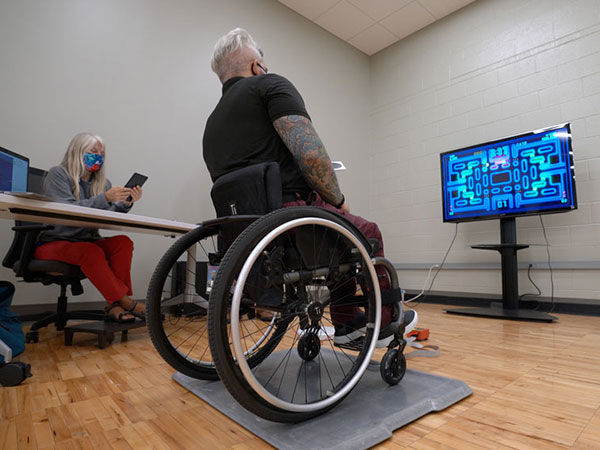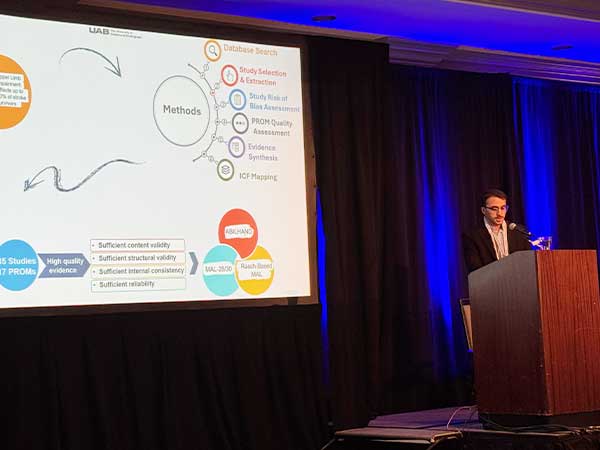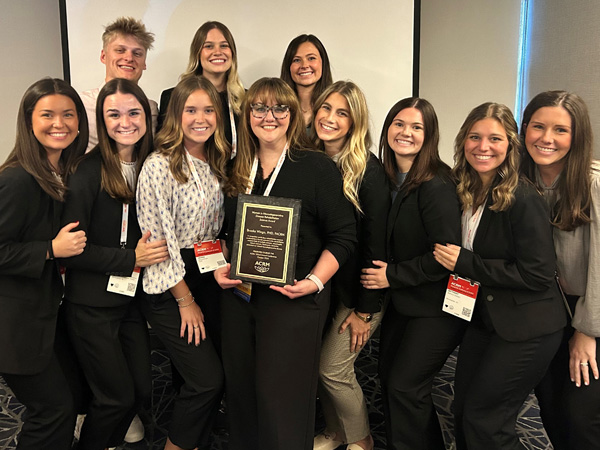 Christen Mendonca, Ph.D.
Christen Mendonca, Ph.D.
UAB/Lakeshore Research Collaborative Postdoctoral ScholarIn 2009, Nintendo sold over 26 million units of the Wii active videogaming system, giving rise to active videogames, or AVG, and revolutionizing the gaming experience. Now, Dr. Christen Mendonca is using pilot grant funding awarded by CEDHARS in February 2022 to potentially develop a new revolution to the gaming experience – this time with regards to inclusivity and accessibility.
Mendonca, postdoctoral scholar for the UAB/Lakeshore Foundation Research Collaborative, has made it his mission to make active video games, AVG, adaptable for people with a mobility limitation. AVG have been used to promote leisure-time physical activity because an estimated 46 million people with a mobility limitation engage in play. However, most current AVG are not inclusive of those who have difficulty standing, lower-extremity weakness, poor motor control or use an assistive device.
From an early age, Mendonca was always active, exercising frequently, as was the case for the rest of his family. After working as a personal trainer, strength-and-conditioning coach and serving as the director of the National Personal Training Institute in Boston, Mendonca pursued his Ph.D. at Drexel University, where he got his first experience with research, studying AVG.
While pursuing his Ph.D., Mendonca came across Lakeshore Foundation at a national conference. He had an immediate interest – not for research at the time, but for personal use, as Mendonca has had a life-long mobility limitation of his own. Later, Mendonca was introduced to Laurie Malone, who was doing AVG research at the Collaborative, and that’s when he realized Lakeshore may be more than just an attractive recreation center.
“So, from then on out, this was my main target to come to,” Mendonca said. “There were some other places I was looking at, but when I made a list, there was no doubt the UAB/Lakeshore Collaborative was No. 1 on that list.”
Starting out at the Collaborative in June, Mendonca hit the ground running, working to conduct further research on and improve the active gaming prototype he developed at Drexel. The controller was reprogrammed so that a player could adjust how to perform a given function in the game. For instance, it could be set up where the player must move their arm in a circle instead of just having to hit the B-button on their controller.
 Drs. Laurie Malone (L) and Christen Mendonca (R) test their adapted videogame controller.“Instead of trying to work with active video games that already existed, I tried it from a different perspective where I was just trying to adapt the controls of a sedentary game to be exercise,” Mendonca said.
Drs. Laurie Malone (L) and Christen Mendonca (R) test their adapted videogame controller.“Instead of trying to work with active video games that already existed, I tried it from a different perspective where I was just trying to adapt the controls of a sedentary game to be exercise,” Mendonca said.
At Drexel, Mendonca’s prototype was used to study a population not specific to people with disabilities. But after coming to the Collaborative, a long-time interest in working with disability became the driving force of his research.
In preliminary testing, the prototype touchpad videogame controller was shown to be usable and moderately enjoyable for adults with a mobility limitation. Adjustments to the controller were made for it to be more adaptable and conducive to energy expenditure.
The purpose of the pilot study is two-fold. First, Mendonca is looking to revise the low-fidelity prototype based on user feedback and testing and second, to determine the exercise intensity elicited by the touchpad videogame controller among adults with a mobility limitation.
After adjusting the controller, Mendonca hopes that it will be about six months before the phase of the study in which thirty adults with limited mobility will attend two lab visits and play videogames: once with a standard handheld controller, and another session with the touchpad videogame controller. Outcomes being measured include energy expenditure, ratings of perceived exertion, enjoyment and self-efficacy.
Following the completion of research and data collection, Mendonca plans to implement an eight-to-12-week intervention to test the efficacy of the touchpad controller to improve the quality of fitness and efficacy of the technology.

